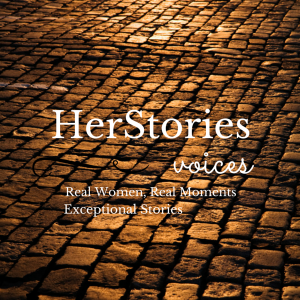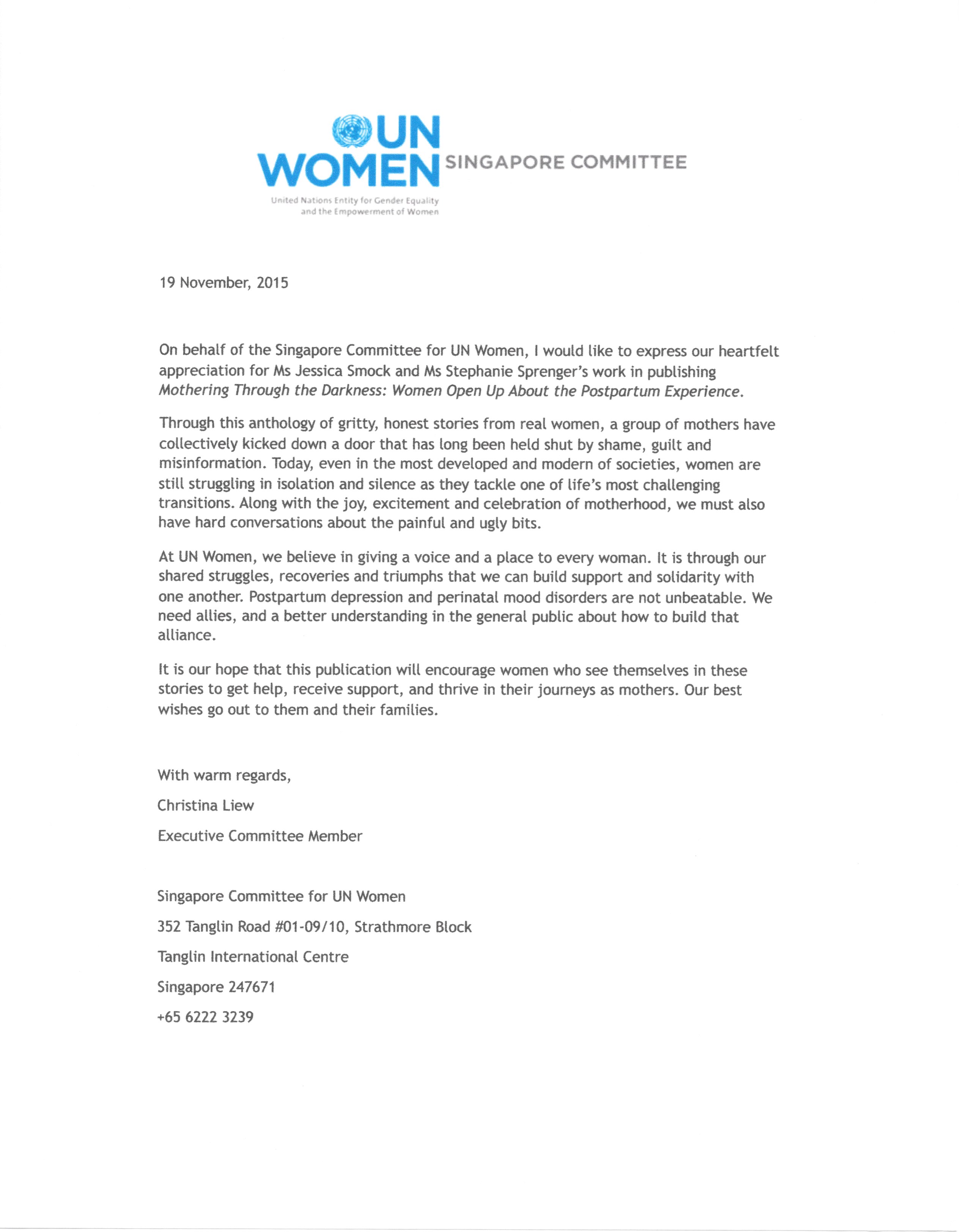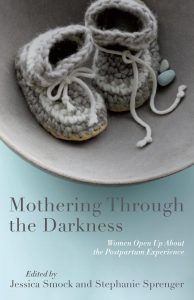HerStories Voices: The Condom
This week we’re featuring a very funny essay written by Paulina Combow, who’s a comedian. Paulina experienced an awkward moment with her mother—extremely awkward. I found myself squirming as I read this—despite the fact that I was laughing. We all want our parents to think the best of us, but little girls grow up and have grown-up lives. Still, some things between mothers and daughters should remain private. Right? At least Paulina has a good story to tell. Enjoy! —Allie
The Condom
Paulina Combow
“Someone’s going to pay for this,” I declared as I shook the six-foot privacy fence in my mom’s backyard, checking for an entry point where the vile vandals might have entered.
My mom, Nancy, is a proud Southern woman in her fifties. She feels most presentable after a fresh at-home bleaching courtesy of Miss Clairol, and a crisp blousy Chico’s ensemble crowned with a statement necklace. She’s really into eyebrows right now and is concerned when mine are not on fleek. She loves things to be picture perfect, like a magazine spread in Garden and Gun. Yes, this is an actual magazine to which she subscribes, and eagerly awaits each month. If you think this publication has a limited audience, you should know she and her garden club got concealed-carry permits together, you know, in case they need to shoot away the weeds.
She’s not only an active member of Garden club, but the Vice President and current title holder of top recruiter in the commonwealth of Kentucky. Evangelizing for Garden club is her tactful, nonracist way of beautifying her community. “Oh dear, the new neighbors have planted Nandinas in even numbers, bless their hearts.”
Each time I visit, no matter what time of the day, it’s imperative to walk the yard and play her favorite game: “Point Out Everything That’s New or Different.” There’s no clear way to win this game.
One day we were doing a walkthrough with my pug, Mook, at my heels while she showed me her newest greenhouse or batch of chicks, when she pointed to something across the yard.
“Paulina!” she gasped. “What is that?”
We hesitantly moved across the lawn, encountering a slimy used condom in the middle of her perfectly pruned grass. My mind raced to 100 sinister conclusions. This is the kind of thing I would expect to see discarded on the side of the road outside an Arby’s. But not Nancy’s garden! The place she spends six months of the year digging, planting, weeding, and replanting in preparation for the Annual Garden Club Tour, which she herself spearheads. People in our antiquated town pay money to stroll through her flowerbeds and drink sweet tea on her front porch. A porch that comfortably seats the entire Duggar family and is attached to a Victorian Home built before the Washington Monument was completed.
The skies turned black and the birds shut their beaks, as her backyard was re-labeled the scene of a sex crime. Nancy stood speechless, a helpless victim, as I took action to locate clues and find the repulsive culprit. “Could someone have snuck back here to have sex in your yard?” I asked.
Nancy’s eyes got wide, “No, no. That wouldn’t happen here.”
Like any good detective, my first suspects were known enemies of the victim. I cut my eyes to the small building in the corner of the lot we called “The Bungalow,” because my sister moved in there after flunking out of college and refusing to get a job or move out. She had the essentials, but no running water. Nancy had a small deck built onto the front to make it feel homier. She planted bushes, added patio furniture and a couple wagon wheels for good measure, but inside was a derelict twenty-something’s hideout covered in fast food cups and a lingering aroma of BO and Maryjane.
“Do you think Portia put it here?” I asked. “To get revenge for telling her the yardman can tell when she pees in the yard?”
“No,” my mom responded. “I just told her that because she was doing it in the middle of the day. I didn’t want anyone to see her and have to add registered sex offender to her criminal record. She’s already banned from the Wal-Mart for stealing that sub sandwich.”
Another dead end, but my mind was still racing. “Then where did it come from? What kind of monster would do this?” Ruling out my sister as a suspect, I looked over the fence to the indoor pool of the neighbor—who also happens to be my mother’s ex-boyfriend.
“What about your ex, Randy?” I asked. “He’s still pretty sore about you asking to store a few plants in his pool for the winter, then turning it into a Rainforest Café.”
A little too quick for my comfort, Nancy responded, “No, Randy doesn’t use condoms.”
Dismissing the tension, my mom looked up at me and pointed to Mook, my overheated pug, who was panting next to my feet. “He did it.”
This was too much for me to handle! My poor baby! He brought this over here? “Where do you think he got it? Do I need to get him tested for STDs? Is there Canine AIDS?”
I still wasn’t getting it. Nancy had to spell it out for me: “He pooped it out.”
If he pooped it out, then it probably came from the trash. My trash. My faced turned a shade of red that put my mom’s prize-winning hibiscus to shame.
Even though I was in my late twenties and in a long-term committed relationship, my mom and I had never really had the talk. I’m sure there was a point where she accepted that I punched my V-card, but we never commemorated it. I was raised very conservatively. In 8th grade I attended Christian School and participated in a purity banquet. My mom purchased a gold ring inscribed “True Love Waits.” I remember thinking, “something’s not right about this” when she was presented with a skeleton key during the ceremony to symbolize my pre-teen abstinence. She kept it on her keychain and probably grinned like Sarah Palin on a snowmobile every time she started her car. The plan back then was to not have sex until I got married, just as the Lord arranged, but of course, in 8th grade, getting laid was not on my radar. All I wanted in life was to kiss Leonardo Dicaprio, wear jeans to school, and not have a King James Version of the Bible as my only textbook.
Interestingly, I kept that vow all through high school. (How did that happen?) I kept the ring . . . in a jewelry box. But like the ring, I pawned my virginity in college to buy groceries. Just kidding. I lost it to a normal dude and it was fine, but yeah, I pawned the ring and hope it was promptly melted down.
I don’t know when mom took that skeleton key off her keychain. The only significant event was when I won the “living in sin” argument and told my family if they didn’t want me to live with my boyfriend then they could pay my rent. Suddenly the Old Testament wasn’t so literal.
Nancy and I had a “don’t ask, don’t tell” policy allowing me to be a fixture in her picture perfect world. I could have gone to my deathbed letting my mom believe my chastity was unbroken, but now that was impossible. She had to know in her heart I’ve knocked boots before, but now she had physical evidence, oozing into her lawn, baking in the sun. The jig was up!
With the case closed, it was time to clean up the crime scene. We couldn’t leave it there and let one of her designer chickens get it tangled on their wooly talons. These hens are swanky, lay organic eggs, and have a better pedigree than the Kennedys and even better hairstyles. Eager to get the place back to normal, Nancy made the first move: “I’ll pick it up.”
“Oh God, NO! Don’t touch it.” I ran inside to get a paper towel with the guilty pug at my heels. How could something so pure and innocent ingest something so foul? When I looked in those big black bug eyes all I would see was dirty dirty sin. We buy you name brand food, and Puperoni’s, and this is how you repay us? And you just HAD to launch it out here?
By the time I came back outside, Nancy had gotten rid of all proof. It was as if it never happened. We didn’t speak of it again until I told her I was writing this story and telling it to an audience. She said she didn’t remember. What had been a moment in time stretched out to defy the laws of physics for me was just a repressed memory for her. Or maybe she was being polite, like when you pretend you didn’t see your friend eat the entire basket of rolls at O’Charleys. At least I know this situation can never repeat itself. We’ve graduated past condoms for birth control in my decade long courtship. As long as my pug can’t squeeze out an IUD, everything in Nancy’s life will remain worthy of a magazine spread.
 Paulina Combow is a writer and performer in Nashville, TN. Her comedy points out the insecurities we all share and puts them on display so we can celebrate then (or at least tolerate them). She’s performed in comedy clubs, casinos, bars and moose lodges all over the country, but mostly the southeast. Her mother refuses to see her stand-up, even when she is in the lobby of the venue. Find her on Facebook, on Twitter @paulinagc and on her website.
Paulina Combow is a writer and performer in Nashville, TN. Her comedy points out the insecurities we all share and puts them on display so we can celebrate then (or at least tolerate them). She’s performed in comedy clubs, casinos, bars and moose lodges all over the country, but mostly the southeast. Her mother refuses to see her stand-up, even when she is in the lobby of the venue. Find her on Facebook, on Twitter @paulinagc and on her website.
**We are now accepting submissions for our Voices column, and we have a special theme for our March essays: rebirth. Send your submissions to our assistant editor, Allie, at herstoriesvoices @ gmail.com







